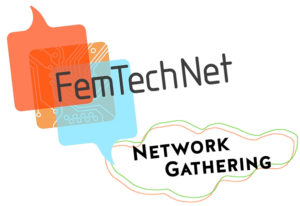
Registration Deadline: Friday, April 21
Founded in 2013, the Feminist Scholars Digital Workshop is a biannual, online, interdisciplinary workshop for individuals working on feminist-oriented research projects. The workshop is sponsored by HASTAC and James Madison University’s School of Writing, Rhetoric and Technical Communication.
Throughout the workshop, participants create and set in motion their own agendas. There is no program for the workshop and there are no presentations. Participants collaborate in small groups to exchange research projects (e.g., articles, webtexts, syllabi, proposals) for feedback and peer review. Small groups are designed to be interdisciplinary and to encourage feminist mentorship by bringing together scholars with varying levels of experience and expertise.
To accommodate diverse schedules and time zones, all peer review activities take place asynchronously, with the exception of keynote talks and online meetings that individual peer review groups elect to set up.
The workshop is designed to:
- Encourage intra- and interdisciplinary research and collaboration
- Discuss feminist research strategies, methodologies/methods, feminist pedagogy
- Promote collaborative learning and professional development
- Foster feminist mentorship across disciplines and professional orientations
- Create a supportive space for feminist scholars to interact and network
2015 Highlights
- Represented 166 participants from over 25 states and 10 countries
- Hosted keynote speaker Amanda Strauss, research librarian at Harvard’s Schlesinger Library on the History of Women in America
- Coordinated workshop activities with 9 volunteers from various institutional, organizational, and disciplinary backgrounds
- Survey results show that over 75% of participants used their workshop experience to publish a refereed project, present at a conference, complete a thesis or dissertation, revise pedagogical materials, and/or complete a multimedia project
The workshop is free and open to anyone interested in feminist research, whether they are students, professors, para-academics, or non-academics.
This year’s workshop takes place Monday, June 12—Sunday, June 18, 2017. The majority of workshop activities will take place via Slack, although we encourage participants to also share ideas on HASTAC & Twitter (#FSDW17).
What Do I Need for the Workshop?
Ideally, you will bring a work-in-progress project (e.g., journal article, syllabus, dissertation chapter, webtext). However, you are not required to have a project to participate and can instead serve as a reader/respondent for others’ work.
Keynote Speakers
Dr. Erin Frost, Assistant Professor at Eastern Carolina University. Dr. Frost’s workshop will be Thursday, June 15, Feminist Credibility: Negotiating Subjectivity in Public Spaces, will examine the ways women’s experiences are often treated as less credible than other perspectives in supposedly “objective” and “neutral” spaces, from research to politics.
Ms. Jenny Ungbha Korn, scholar of Identity & Media at the University of Illinois at Chicago. Ms. Korn’s workshop will be Monday, June 12, Intersectional Feminist Solidarity in Networked Practices: Shared Online Experiences and Strategies Involving Feminist Identity and the Digital, will offer participants the opportunity to examine how digital practices influence intersectional feminist work.
For more information, contact FSDW’s Director, Lori Beth De Hertogh, at feministscholarsworkshop@gmail.com (link sends e-mail). You can also access updates via Twitter using #FSDW17.





 Invitation to join members of the
Invitation to join members of the